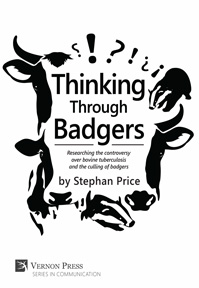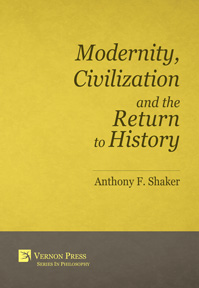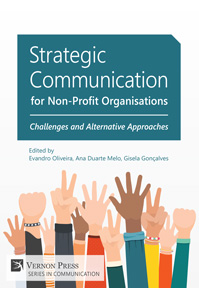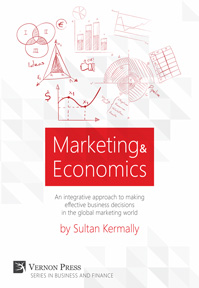Search
Browse
by Publication status
by Subject
Anthropology (26) Art (122) Business and Finance (25) Cognitive Science and Psychology (53) Communication and Journalism (43) Economics (61) Education (65) History (144) Human Geography (22) Interdisciplinary (40) Language and Linguistics (127) Law (16) Music Studies (18) Philosophy (152) Political Science and International Relations (98) Sociology (293) Statistics and Quantitative Methods (19)by Series
Series in Literary Studies (62) Series in Philosophy (58) Series in Education (49) Series in Sociology (42) Series in World History (31) Series in Politics (30) Bridging Languages and Scholarship (26) Series in Language and Linguistics (25) Cognitive Science and Psychology (20) Series in Philosophy of Religion (20) Series in American History (19) Series in Art (19) Critical Perspectives on Social Science (16) Series in Cinema and Culture (16) Curating and Interpreting Culture (15) Series on the History of Art (14) Series in Anthropology (13) Series in Critical Media Studies (13) Economics (13) Series in Business and Finance (12) Series in Music (12) Series in Performing Arts (9) Philosophy of Personalism (8) Series in Communication (8) Series in Law (8) Series in Economic Methodology (7) Series on Climate Change and Society (7) Classics in Economics (6) Series in Economic Development (6) Women's Studies (6) Philosophy of Forgiveness (5) Series in Built Environment (5) Series in Economic History (5) Series in Philosophy of Science (4) Series in Social Equality and Justice (4) Series on the History of Science (4) Serie en Sociología (3) Series in Contemporary History (3) Series in Creative Writing Studies (3) Series in Design (3) The Interdisciplinary Built Environment (3) Series in Heritage Studies (2) Series in Innovation Studies (2) Serie en Ciencias Políticas (1) Serie en Comunicación y Medios (1) Serie en Entorno Construido (1) Serie en Estudios Culturales (1) Serie En Estudios Literarios (1) Serie en Filosofía (1) Serie en Música (1) Series in Classical Studies (1) Series in Economics of Technological Change (1) Series in Philosophy of Race (1) Series in Urban Studies (1)by Language
English Spanishby Author
Browsing with filters

Thinking Through Badgers
Researching the controversy over bovine tuberculosis and the culling of badgers
Stephan Price, University of Exeter
Availability: In stock
334pp. ¦ $60 £48 €55
Bovine tuberculosis is seriously damaging the UK dairy and beef industry. Many farmers believe culling badgers must be part of the solution, but in 2013 a record 300,000 people signed a Downing Street petition asking the government to stop planned culls of badgers in Somerset and Gloucestershire, fuelling media controversy and signalling the beginning of a social conflict that was acted out in studios, streets, fields and village halls across England. The four-year trial culls, which began that year, aimed to establish that culling was a viable way of tackling the disease, but the widely divergent experiences and values of policy-makers, farming, conservation and animal welfare supporters means that decades of science on the disease in badgers and the effects of culling has not helped resolve the dispute. Reporting on original, UK research council-funded social science, this book takes on the challenge of understanding the contrasting views involved. Listening carefully to what the different protagonists have to say, the book unpicks the way science is interpreted to sustain differing conclusions, and considers how social science thinking could contribute. The book develops a critical perspective on the increasingly important literature influenced by new materialism, the social science response to the Science Wars, and explores the extent to which a social movement around opposition to the culls is emerging. In approachable prose, this access-all-areas account describes the struggle to develop understanding through the messy process of research and the difficulties of scientific analysis and philosophical thought. As such, it provides a valuable resource for both research practitioners and teachers within the social sciences, as well as an accessible way for biological scientists, conservationists and farmers to reflect on the issues around the management of disease in livestock and wildlife.
Modernity, Civilization and the Return to History
January 2017 / ISBN: 978-1-62273-184-8Availability: In stock
586pp. ¦ $80 £68 €77
The modern concept and study of civilization have their roots, not in western Europe, but in the spirit of scientific investigation associated with a self-conscious Islamicate civilization. What we call modernity cannot be fathomed without this historical connection. We owe every major branch of science known today to the broad tradition of systematic inquiry that belongs to a “region of being”—as Heidegger would say—whose theoretical, practical and institutional dimensions the philosophy of that civilization played an unprecedented role in creating. This book focuses primarily on the philosophical underpinnings of questions relating to civilization, personhood and identity. Contemporary society and thinking in western Europe introduced new elements to these questions that have altered how collective and personal identities are conceived and experienced. In the age of “globalization,” expressions of identity (individual, social and cultural) survive precariously outside their former boundaries, just when humanity faces perhaps its greatest challenges—environmental degradation, policy inertia, interstate bellicosity, and a growing culture of tribalism. Yet, the world has been globalized for at least a millennium, a fact dimmed by the threadbare but still widespread belief that modernity is a product of something called the West. One is thus justified in asking, as many people do today, if humanity has not lost its initiative. This is more a philosophical than an empirical question. There can be no initiative without the human agency that flows from identity and personhood—i.e., the way we, the acting subject, live and deliberate about our affairs. Given the heavy scrutiny under which the modern concept of identity has come, Dr. Shaker has dug deeper, bringing to bear a wealth of original sources from both German thought and Ḥikmah (Islamicate philosophy), the latter based on material previously unavailable to scholars. Posing the age-old question of identity anew in the light of these two traditions, whose special historical roles are assured, may help clear the confusion surrounding modernity and, hopefully, our place in human civilization. Proximity to Scholasticism, and therefore Islamicate philosophy, lent German thought up to Heidegger a unique ability to dialogue with other thought traditions. Two fecund elements common to Heidegger, Qūnawī and Mullā Ṣadrā are of special importance: Logos (utterance, speech) as the structural embodiment at once of the primary meaning (essential reality) of a thing and of divine manifestation; and the idea of unity-in-difference, which Ṣadrā finally formulated as the substantial movement of existence. But behind this complexity is the abiding question of who Man is, which cannot be answered by theory alone. Heidegger, who occupies a good portion of this study, questioned the modern ontology at a time of social collapse and deep spiritual crisis not unlike ours. Yet, that period also saw the greatest breakthroughs in modern physics and social science. The concluding chapters take up, more specifically, identity renewal in Western literature and Muslim “reformism.” The renewal theme reflects a point of convergence between the Eurocentric worldview, in which modernism has its secular aesthetics roots, and a current originating in Ibn Taymiyyah’s reductionist epistemology and skeptical fundamentalism. It expresses a hopeless longing for origin in a historically pristine “golden age,” an obvious deformation of philosophy’s millennial concern with the commanding, creative oneness of the Being of beings.
Portrait of Young Genius – The Mind and Art of Marie Bashkirtseff
December 2016 / ISBN: 978-1-62273-171-8Availability: In stock
304pp. [Color] ¦ $85 £68 €80
Marie Bashkirtseff was of one of the most extraordinary women of the 19th century. Her Journal (originally comprising some 20,000 hand-written pages but pared down to a few hundred for publication) was a cause célèbre after her death and continues to be an inspiration to the Women’s Movement to this day. It also inspired such great writers as Anaïs Nin and Katherine Mansfield among many others. Born into an aristocratic family in a village in Ukraine the family soon settled in France, first in Nice and later in Paris. Taught entirely by tutors Marie spoke multiple languages, played numerous musical instruments and longed for a singing career on the stage. An illness that affected her throat made her change course and she took up painting for which she had a latent talent. As a student at the Académie Julian in Paris she was soon exhibiting at the annual Paris Salon, the premier venue for artists. But it was her personality that makes Marie Bashkirtseff such an exceptional individual. At a very young age she was already exhibiting in her Journal the thoughts of a learned philosopher, wrestling with the nature of God, the position of women in society, the politics of men. Having contracted tuberculosis in early childhood she ceaselessly strove to shrug it off in her quest to achieve greatness. In the end, a great tragedy unfolds. The book is somewhat unique in format. The first part is a biographical section that describes Marie’s unusual and fascinating life. Then a second section, consists of a single Journal excerpt (in English translation from the original French) on each left-hand page, juxtaposed with one of her outstanding works of art on the facing page. In this manner, we learn about her remarkable life and tribulations, enter her restive and brilliant mind via her Journal, as well as appreciate her exceptionally fine works as an artist.
Strategic Communication for Non-Profit Organisations
Challenges and Alternative Approaches
Edited by
Evandro Oliveira, University of Leipzig, Germany et al.
Availability: In stock
308pp. ¦ $70 £55 €65
Communication in the public sphere as well as within organizational contexts has attracted the interest of researchers over the past century. Current forms of citizen engagement and community development, partly enabled through digital communication, have further enhanced the visibility and relevance of non-profit communication. These are performed by the civil society, which is 'the organized expression of the values and interests of society' (Castells, 2008) in the public sphere. Non-profit communication feeds the public sphere as 'the discursive processes in a complex network of persons, institutionalized associations and organizations,' whereas those 'discourses are a civilized way of disagreeing openly about essential matters of common concern' (Jensen, 2002). Despite the relevance in the public sphere, non-profit communication was never properly defined within communication research. The aim of the present book is to offer an overview and report on Strategic Communication for Non-Profit-Organisations and the Challenges and Alternative Approaches. Considering the assumption that a key principle of strategic communication is the achievement of organisational goals, the majority of research developed in the field has used business environments to develop theories, models, empirical insights and case studies. Here, we take a step towards new approaches centred on the concept of non-profit in various dimensions and from various perspectives, showing the diversity and complexity around this subject and at the same time the need of further theoretical and empirical work that provides frameworks and also tools for further understanding of the phenomena.
Marketing & Economics
An integrative approach to making effective business decisions in the global marketing world.
July 2016 / ISBN: 978-1-62273-104-6Availability: In stock
228pp. ¦ $40 £28 €30
This book bridges the disciplines of economics and marketing and brings them to bear on the analysis of contemporary business problems. The world has changed dramatically over the last four decades. Sociologically, technologically, economically and politically speaking the world is changing at an increasing pace. The spread of ideas and values are reinforcing the impact of globalization on various business operations and activities. As the late Peter Drucker once remarked: “while you were out the world changed.” To make sense of to the world we live in, we are compelled to draw from diverse disciplines and subjects.This book focuses on the contributions of economics and marketing. The basic principles, theories and issues of economics are selected and are integrated with key elements and principles of marketing. Marketers, in conventional as well as in digital markets, are encouraged to integrate marketing with economics in order to make successful and effective business decisions. Marketing and Economics are subjects dealing with business – business of private firms, not-for-profit organisations and that of government. Economics involves allocation of scarce resources. Scarcity in economics is relative scarcity, scarcity in relation to demand. Written in a casual, accessible language and taking very little for granted, this book is for anyone who is curious about economics and marketing. It provides the essential analytical framework necessary for thriving in today's business. In its diverse chapters it covers topics such as offshoring, the circular economy, benchmarking, mergers and acquisitions, knowledge and innovation, services industries, customer relationships, advertising and communication, among others. It is particularly well suited to undergraduates in business or economics and its fresh perspectives on today's challenges would be of interest to business managers and marketing professionals.






